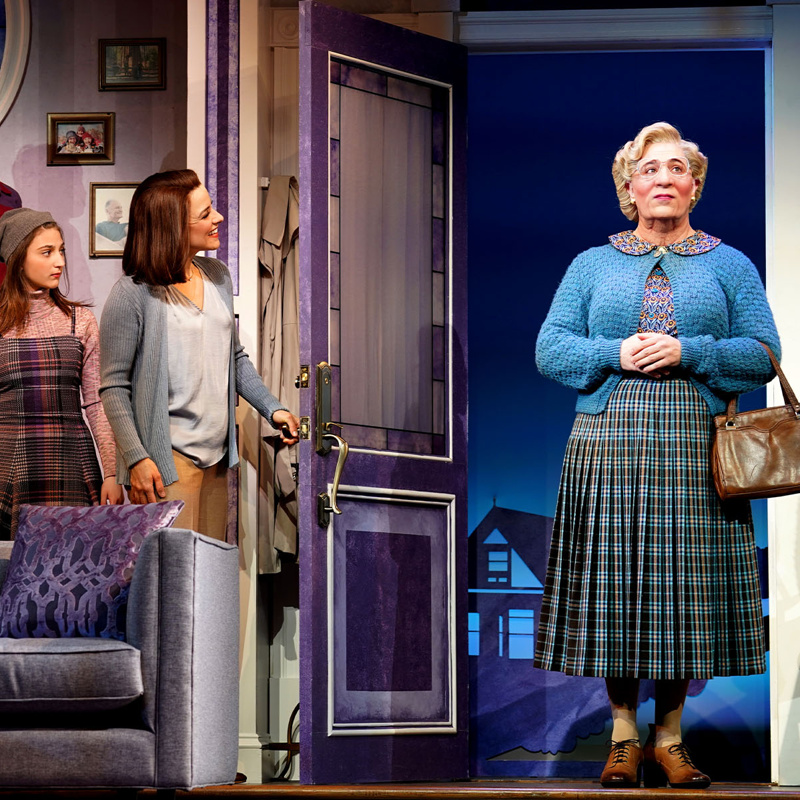Read the whole thing here.The first big-budget commodity musical to hit Broadway since the end of the Covid-19 lockdown has now opened—at a theater named after a man who despised such shows. It couldn’t be more ironic that the Stephen Sondheim Theatre is home to “Mrs. Doubtfire,” a new stage version of Chris Columbus’ 1993 screen comedy about a divorced father who dresses up as a woman and becomes nanny to his children so that he can see more of them. And while “Mrs. Doubtfire” is less slavishly faithful to the film than is the norm, it is nevertheless a fairly straightforward attempt to treat a popular movie of the recent past not as a springboard for fresh, creative endeavor but as an exploitable economic commodity that can be “repurposed” for further profit.
The catch is twofold: Not only was “Mrs. Doubtfire” a mediocre movie, but it existed mainly to provide Robin Williams with another of his hypermanic star turns. And while extremely serious money has gone into the show, no amount of money can make Rob McClure into another Robin Williams….
Replay: Adam Driver sings “Being Alive”
Almanac: Santayana on marriage
“It takes patience to appreciate domestic bliss; volatile spirits prefer unhappiness.”
George Santayana, The Life of Reason
Almanac: Benjamin Franklin on love and marriage
“Where there’s marriage without love, there will be love without marriage.”
Benjamin Franklin, Poor Richard
Snapshot: Stephen Colbert interviews Stephen Sondheim
Almanac: Chesterton on marriage and drama
“A happy love-affair will make a drama simply because it is dramatic; it depends on an ultimate yes or no. But a happy marriage is not dramatic; perhaps it would be less happy if it were.”
G.K. Chesterton, George Bernard Shaw
Move on
A new episode of Three on the Aisle, the podcast in which Peter Marks, Elisabeth Vincentelli, and I talk about theater in America, is now available on line for listening or downloading.
Here’s American Theatre’s “official” summary of the proceedings:
To listen to or download this episode, read more about it, or subscribe to Three on the Aisle, go here.Once a month since September 2017, Terry Teachout of The Wall Street Journal; Elisabeth Vincentelli, contributor to The New York Times and The New Yorker; and Peter Marks of the Washington Post have gotten together to talk about what’s going on in the American theatre.
After a wonderful four-year run, we are sad to say this is the last episode of Three on the Aisle. We hang up our hats with a discussion of Stephen Sondheim’s legacy, and a reflection on how theatre has grown and changed over the years we’ve been making the show. Thank you all for listening, and we’ll see you on the aisle.
Lookback: Paul Taylor, R.I.P.
From 2018:
Read the whole thing here.Part of the durability of [Paul Taylor’s] dances arises from the subtlety with which they dramatize the opposing polarities of man’s divided self— male/female, dark/light, primitive/civilized, innocent/knowing—and set them in motion on stage, there to collide with one another, sometimes comically and sometimes fatally. Rarely does a Taylor dance express an emotion without also hinting at its inversion. This dualism is part of what makes his work at once ambiguous and accessible…





